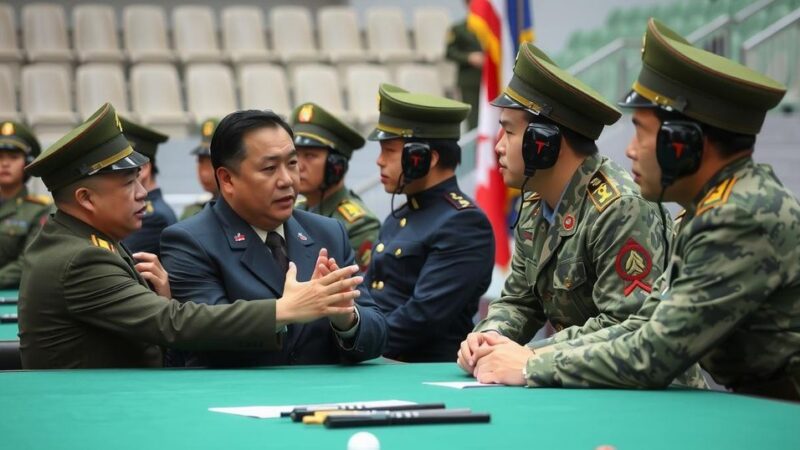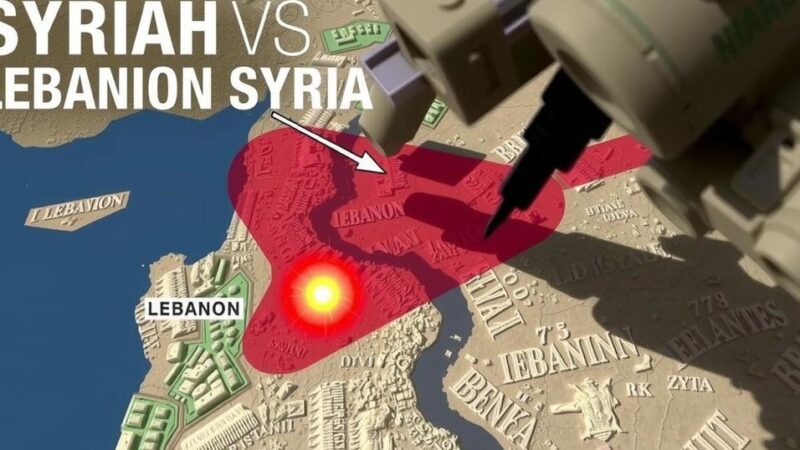As Palestinian Authority President Mahmoud Abbas reaches the 20-year mark of his leadership, the Palestinian political landscape remains divided and fraught with challenges. Despite initial optimism for achieving statehood through diplomatic means, internal rivalries and a lack of elections since 2006 have hampered progress. Recent international initiatives, particularly from Saudi Arabia, signal potential for renewed engagement in the peace process, highlighting the importance of unity among Palestinian factions and strategic negotiation with Israel.
As Mahmoud Abbas marks his 20th year in office, his presidency reflects a complex narrative of ambition, division, and ongoing struggles within Palestinian governance. Since succeeding Yasser Arafat in 2005, Abbas has faced numerous challenges, including an internal schism with Hamas, considerable public disillusionment, and the ongoing occupation by Israel. While aiming for a two-state solution through diplomatic methods, Abbas’ leadership has been fraught with stagnation and intense scrutiny, especially regarding the lack of elections since 2006, which many see as undermining his legitimacy.
Abbas’s tenure was originally intended for four years, yet it has extended significantly due to fragmented political rivalries and the persistent absence of a unified Palestinian front. His administration has evolved in a landscape marred by Hamas’s control over Gaza, complicating negotiations with Israel and broadening public dissatisfaction as factions within the Palestinian Authority (PA) vie for influence. Although Abbas has pursued nonviolent resistance and attempted to reestablish international support, his credibility has waned amidst accusations of corruption and his perceived failure to foster meaningful progress towards Palestinian statehood.
Recent geopolitical shifts, particularly the role of Saudi Arabia in mediating regional conflicts, bring a renewed focus to Palestinian aspirations. The formation of the Global Alliance for the Implementation of the Two-State Solution underlines international commitment to supporting Palestinian rights, aiming to foster negotiations surrounding key contentious issues. This endeavor casts a spotlight on whether Abbas’ leadership will lead to the long-sought establishment of a Palestinian state. Saudi Arabia’s active engagement signifies a potential turning point, but also highlights the critical need for internal Palestinian unity and an adaptive approach to leadership that resonates with younger generations.
Ultimately, as Abbas celebrates this regeneration of attention towards Palestinian statehood, the path ahead remains laden with significant obstacles. While international support provides hope, the challenge lies in evolving the internal dynamics of Palestinian politics that have stymied progress for decades. The reconciliation of differing political factions and attracting substantial support from both Arab and global stakeholders will be paramount in determining Abbas’ legacy and the future of Palestine.
Mahmoud Abbas, also known as Abu Mazen, has served as the President of the Palestinian Authority since January 15, 2005, following the death of Yasser Arafat. His presidency has been characterized by efforts to achieve Palestinian statehood through negotiations with Israel. The internal political landscape has been tumultuous, particularly after Hamas gained control of Gaza in 2007, leading to a profound split between the rival factions of Fatah and Hamas. The absence of elections and growing public dissatisfaction with the PA’s governance exacerbate the challenges faced by Abbas.
In summary, Mahmoud Abbas’ two-decade tenure as President of the Palestinian Authority is marked by both resilience and significant challenges. His efforts to achieve an independent Palestinian state through diplomatic channels face ongoing internal divisions and external pressures. The emergence of new international coalitions, chiefly led by Saudi Arabia, offers a glimmer of hope for renewed negotiations. However, Abbas’ legacy will ultimately hinge on his ability to unify Palestinian factions and navigate the complex landscape of regional politics.
Original Source: www.arabnews.com







